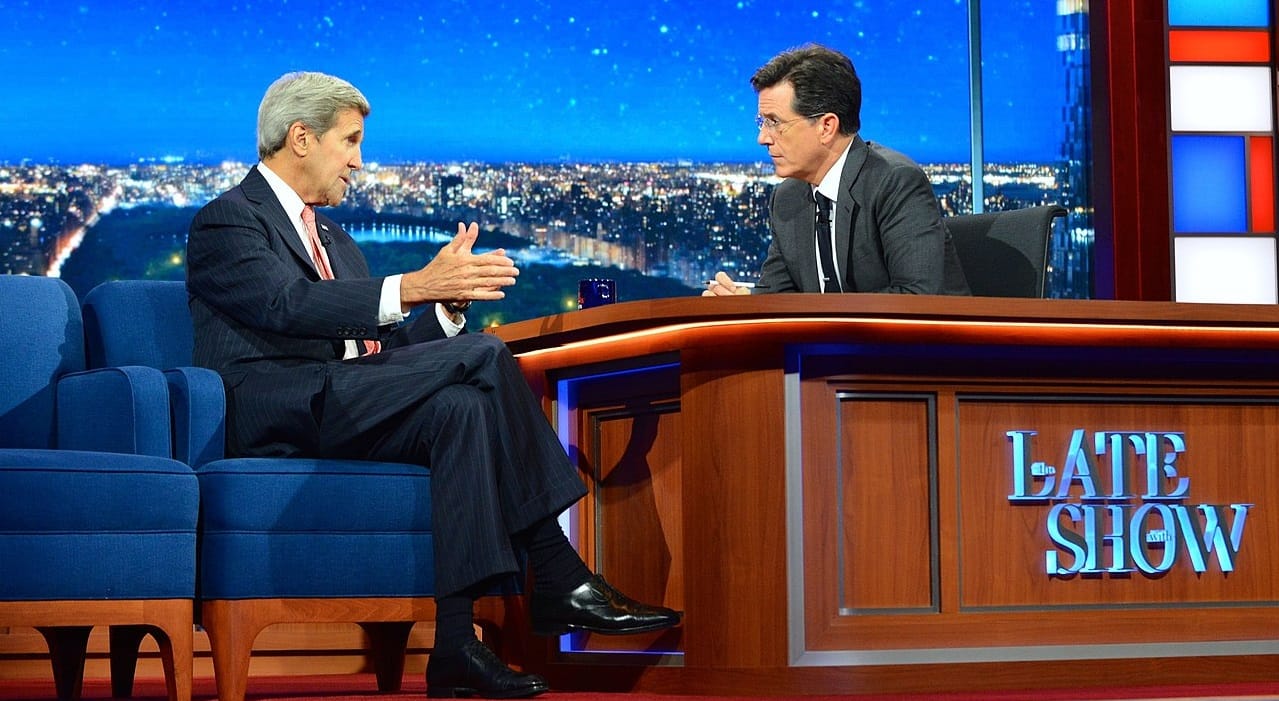
The future of late night
If late-night TV is ending, what might replace it?
CBS is canceling The Late Show with Stephen Colbert, even though it's the top-rated show in its timeslot. Executives claimed with a straight face that it was "purely a financial decision" unrelated to the show's content. That implausible lie only shines a spotlight on the real reason: it was retribution for Colbert saying on air that CBS' corporate parent, Paramount, paid a "big fat bribe" to Donald Trump's administration to clear the way for a pending merger. CBS hired a comedian to tell the truth, then got angry when he did what they hired him for.
With this announcement, I feel the need to recount a story about the kind of thing that goes away when a show like The Late Show ends.
A nostalgia tour of New York City
Once upon a time, between the end of the Late Night Wars and 9/11, my best friend and I scored tickets to see David Letterman film an episode of The Late Show. The nearest Greyhound bus line that would take us on the two-hour trip to the Port Authority was a 6 AM commuter bus, for people who lived in the Poconos but worked in the city.
That meant we had plenty of time to wander in the city around the Ed Sullivan Theater before the show.
Now, as fellow oldheads may remember, Letterman used to do a bit on Late Night on NBC where he’d call the building across the street and talk to one of the employees seated next to a window. He sort of carried that tradition over to The Late Show, with segments sending a camera man into a nearby deli or trinket shop. People got a peek into the lives of some pretty average New Yorkers.
But he didn’t call the building across the street anymore, like he had on NBC when his show taped at Rockefeller Center.
My friend and I wondered why that was and looked at the map. To our teenaged comic-book aficionado delight, we learned that the Ed Sullivan Theater was directly across the street from what was then the DC Comics offices, until they moved to Burbank in 2015.
So, of course, as any strapping young mountain boys would do while alone in the big city without adult supervision, we snuck into the DC Comics offices.
Really, it wasn’t so much sneaking. We just walked in. No one stopped us at first, but we were politely asked to leave as soon as someone realized we weren’t supposed to be there. However, even that calm yet firm ejection was a sharp contrast to the warm reception we had gotten on the MAD Magazine floor.
The MAD offices had a large bronze Alfred E. Neuman statue in the middle of the floor. The receptionist gave us a tour, and we signed a guestbook filled with little notes presumably from other people, like us, who wandered in off the street. We were awestruck to be in the same place as some of the writers and artists we practically worshipped at the time.
Now, mind you, this all took place damn near thirty years ago. The bus ticket was about twenty-eight bucks. Tickets to Letterman were free. The memories were priceless.
Act globally, stream locally
My feelings about the end of The Late Show are all muddled up with my feelings of nostalgia about that experience. The end of shows like The Late Show means fewer young adults will get to have unique adventures like that. Maybe, just maybe, trading away those moments in the name of increasing shareholder value isn’t the best idea in terms of culture.
Advertisers prefer if you watch at home. They just want your attention as cheaply as possible. Facilitating a constant supply of live studio audiences is an expensive, logistically complicated proposition. The future of late-night TV may be hosts and guests sitting in front of a green screen, playing to an empty room.
Although the decline of national late-night TV is a disturbing trend, there's an opportunity in encouraging viewers to re-localize their content consumption. After all, there’s no reason why TV shows should only be filmed in New York and Los Angeles. There are plenty of smaller cities that would make for welcoming locales.
A quick search shows several venues for sale. “Live from the Curious Theater in beautiful Denver, Colorado” has a pretty good ring to it, for example. The technology is cheaper and more accessible than ever. With the right host and guest wranglers and a few upgrades, someone could make a go of it.
The Orpheum in Phoenix is owned by the city, but was once owned by Paramount Pictures, which now owns CBS. There would be a fun symmetry in a late-night show from downtown Phoenix. Summer afternoon audiences would flock to the free air conditioning.
There's nothing wrong with late-night TV as a medium. Most people who work an eight-hour shift want some light entertainment in the evenings after they get home from work. But no one is doing it with over-the-air network TV anymore. On the other hand, the low costs and wide availability of livestreaming make it not just possible, but easier than ever before.
So, while Colbert's cancellation may be the canary in the coalmine signaling the end of the late night network talk show, it could also signal the opportunity for a growing diversity of local talent. It could be akin to the late night creature-feature hosts that were popular in the 80s on local affiliates. A few grew to national prominence, like Elvira and Svengoolie, but many more made humble but memorable livings, like WNEP’s Uncle Ted and Virginia’s Dr. Madblood.
Perhaps, if we cannot prevent the networks capitulating to political pressure, then the answer is to act locally and stream globally.
